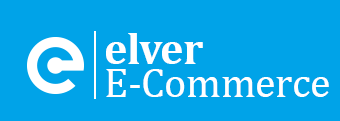Navigating the complex world of VAT on Facebook ads can be challenging. This article aims to provide clarity and guidance to e-commerce businesses on this topic.
VAT On FB Ads
Value Added Tax, or VAT, is a form of tax that applies to goods and services Facebook ads are no exception to this. Depending on your business location and VAT registration status, you may be required to pay VAT on your Facebook advertisements.
Countries and Regions Where VAT May Be Applicable to Advertising on Facebook
VAT (or GST in many countries outside of Europe), is a tax commonly charged on the sale of goods or services, with different rules and regulations depending on the country or region. In some areas, Facebook is required to charge VAT on the ads sold to businesses. The UK is one such region where VAT may be applicable, depending on the specific circumstances of the ad purchaser.
Determining VAT on Facebook Advertising
Understanding VAT around advertising on Facebook ads requires a clear grasp of the specific VAT requirements of each country. In the UK, for instance, the application of VAT depends primarily on your business’s VAT registration status.
It requires a clear grasp of the specific VAT requirements of each country. In the UK, for instance, the application of VAT depends primarily on your business’s VAT registration status.
For businesses not registered for VAT, you will need to provide suitable evidence to Facebook to prove your business status. In this case, Facebook will also not charge VAT on your advertising. However, it’s crucial to understand that these fees are still subject to the reverse charge mechanism.
The reverse charge mechanism is a system where you account for both the sale and purchase of services, resulting in a nil overall impact on a return if registered. However, for non-registered businesses, the additional “sales” created by the reverse charge mechanism count towards the VAT registration threshold in the UK, which is currently set at £85,000.
Therefore, even if you are not registered for VAT and are not being charged VAT by Facebook, the fees can still contribute to reaching the VAT registration threshold. This is an important consideration for businesses advertising on Facebook, as it could potentially impact your VAT registration requirements.
The Role of VAT in Cross-Border Advertising
It’s important to note that the location your ads are targeting is not a relevant factor in determining the VAT treatment of your Facebooks advertising costs. It is only the location of your company and it’s VAT registration status that will have a bearing on the VAT treatment of your FB ads.
Understanding VAT Calculation and Application
VAT is calculated as a percentage of the cost of goods and services. In the context of Facebook advertising, if applicable, VAT is added to your ad account’s payment. In the UK, the applicable rate of VAT is 20%.
Compliance and Remittance
Compliance with VAT rules requires a clear understanding of the regulations. If your business is VAT registered, you’ll need to account for VAT on your ads through the reverse charge mechanism. Accounting for VAT under the reverse charge mechanism usually results in no overall impact on the VAT liability of the business. The only exception to this is in the case of businesses with exempt or partially-exempt sales.
FAQs
1. Is there a VAT on Facebook Ads in the UK?
Yes, VAT may apply to FB Ads in the UK. However, if your business is VAT registered, you’ll need to account for it through the reverse charge mechanism and therefore won’t be charged VAT.
2. Do businesses need to register for VAT for FB ads?
Businesses in the UK that exceed the VAT threshold need to register for VAT. Once registered, they’ll need to account for VAT on Facebook advertisements through the reverse charge mechanism. However, use of Facebook ads in itself does not trigger a requirement to register for VAT in the UK.
3. How can I see the VAT amount I paid?
You can view the VAT amount in your payment history in your Facebook ad account.
4. Can I add my VAT registration number to my Facebook ad account?
Yes, you can add your VAT registration number to your Facebook ad account in the “Payment Settings”. For companies new to selling on Facebook, it is recommended that you do this as soon as you start advertising on Facebook. Doing so will ensure that the business is not charged VAT on Facebook ads unnecessarily, thereby improving the cash flow of the business.
5. How to get an invoice from Facebook?
You can download your invoices from the “Billing” section in your Facebook ad account.
6. Should I set up the Meta advertising account personally or in the name of my business?
It is important that you set up the ad account in the name of the business so that Facebook will raise their invoices in the name of the business. In addition, if the ad account is set up in a personal name, Facebook will be unable to verify the VAT registration status of the business which will result in you being charged VAT unnecessarily.
7. What other services are subject to VAT similar to Meta’s Ads?
The VAT treatment of Facebooks ads is similar to that of some other common charges for an e-commerce business in the UK. These include Shopify payments fees, Stripe fees, Google Ad fees and the majority of Amazon fees (the key exception to this rule being Amazon advertising fees). The reason for the VAT treatment of each of these fees being consistent is that each of these are services billed to your UK business from outside of the UK, thus being treated under the reverse charge mechanism for UK VAT registered businesses.
At Elver E-Commerce Accountants, we understand the complexities of e-commerce. As VAT accountants, we can help you navigate the VAT requirements for your Facebook ads, alongside all other VAT issues that an e-commerce business is likely to face, ensuring you stay compliant and informed. Moreover, we understand that e-commerce businesses are much more likely to be exposed to international VAT and GST. But don’t worry, we’ve got you covered. We can help you navigate these complexities with ease.
Elver E-Commerce Accountants are specialists in VAT accountancy. If you would like to discuss how our FB VAT services can help, please give us a call on 01942 725419


